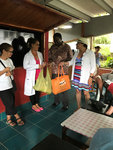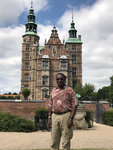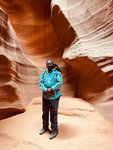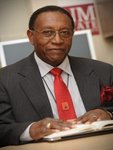Wind: 5.8 mph, W
Welcome to our new web site!
To give our readers a chance to experience all that our new website has to offer, we have made all content freely avaiable, through October 1, 2018.
During this time, print and digital subscribers will not need to log in to view our stories or e-editions.




Article II, Section 4, Inherent Rights. All persons are born equally free, and have certain natural, inherent and inalienable rights, among which are the rights of enjoying and defending life and liberty, of acquiring, possessing and protecting property, and of seeking and obtaining safety and happiness.
Article II, Section 5: Rights under Treaty of Guadalupe Hidalgo Preserved. The rights, privileges and immunities, civil, political and religious guaranteed to the people of New Mexico by the Treaty of Guadalupe Hidalgo shall be preserved inviolate. (The treaty ended the Mexican-American War (April 25, 1846-Feb. 2, 1848 and made New Mexico and other states part of the United States.)
Article 12, Section 8
Sec. 8. (Teachers to learn English and Spanish.) The Legislature shall provide for the training of teachers in the normal schools or otherwise so that they may become proficient in both the English and Spanish languages, to qualify them to teach Spanish-speaking pupils and students in the public schools and educational institutions of the state, and shall provide proper means and methods to facilitate the teaching of the English language and other branches of learning to such pupils and students.
Article 12, section 10:
Sec. 10. (Educational rights of children of Spanish descent.) Children of Spanish descent in the state of New Mexico shall never be denied the right and privilege of admission and attendance in the public schools or other public educational institutions of the state, and they shall never be classed in separate schools, but shall forever enjoy perfect equality with other children in all public schools and educational institutions of the state, and the Legislature shall provide penalties for the violation of this section. This section shall never be amended except upon a vote of the people of this state, in an election at which at least three-fourths of the electors voting in the whole state and at least two-thirds of those voting in each county in the state shall vote for such amendment.
As a kid growing up in Beaumont, Texas, H. Prentice Baptiste could hear the lion roaring at the zoo a few blocks from his home. But he and his brothers and sisters never got to see the lion. Only whites could attend the zoo.
“We could not go to that zoo because of the color of our skin,” said Baptiste, who grew up in a segregated neighborhood.
Now 83, Baptiste is celebrating his 25th anniversary at New Mexico State University, where he serves as a Regents and Distinguished Achievement professor. Throughout an academic career that began more than 50 years ago, Baptiste has taught, written and lectured about the overt and systemic racism that continues “in neighborhoods across the United States and even in Las Cruces.”
He is also a nationally and internationally recognized author and lecturer on multicultural education.
And like the roar of that lion, Baptiste speaks with a voice that travels.
He is co-founder and past president of the National Association for Multicultural Education (NAME), which has been advocating for equity and social justice across the United States since 1990. He is the author or editor of seven books, including textbooks, along with more than 125 articles, papers and book chapters about multicultural education. He has presented papers and conducted multicultural workshops in the United States and in Nigeria, Egypt, Germany, Jamaica, Kenya, Morocco, the Netherlands and Cuba.
Cultural diversity in math and science
Part of Baptiste’s focus is the lack of cultural diversity in science and mathematics instruction in schools, colleges and universities.
“Sometimes, we forget that science has been around for a long time,” he said. “Africa, Asia and other parts of the world were doing science long before the European reformation. They knew quite a bit about astronomy, the movement of planets, the moon and the stars. They used science, trigonometry and other mathematical operations in the construction of the pyramids and other people made structures.
“Few individuals are aware of the Alvarez Hypothesis proposed by Mexican scientists Luis and Walter Alvaraz,” Baptiste said. “They utilize data collected from a meteor-impacted crater that cause the release of dust and debris into the atmosphere which caused severe climate changes that led to the extinction of dinosaurs.”
In the United States, Native Americans were already farming when the Pilgrims came to America, Baptiste said, and understood poly-cropping and plowing to conserve water. In the South, agricultural scientist George Washington Carver (1864-1943) introduced peanut plants to cotton fields to keep nitrogen in the soil and increase cotton production.
Black inventor Louis Lattimer (1848-1928), a contemporary of Thomas Edison, also developed a filament for lightbulbs, but history books “don’t give him credit for what he did,” Baptiste said.
“Many groups of people have contributed to the development of science and mathematics,” he said.
But even today, “We teach (that) science and mathematics came out of one culture,” Baptiste said.
One of the principles he teaches is that “knowledge is socially distributed. What you know is what you’ve been allowed to know. How you control people is by taking their knowledge away from them, not letting them know their own history,” he said. “That leads to the belief that only certain people have the intelligence to do math or do science. It’s been proven over and over again that’s not true.”
But curricula and textbooks continue to “communicate a monopoly of science and math by a particular group of people,” Baptiste said.
“Certain people are given credit, others are not,” he said.
Racism, sexism and poverty
Exclusions are based not only on race, but also on gender, Baptiste said, noting that for many years people “didn’t think women had the intelligence to do higher math.”
Discrimination can also be based on economics, he said. In Las Cruces, for example, some schools in poor neighborhoods “tend not to have the same kinds of resources” as schools in wealthier areas.
“To me, that speaks of systemic racism,” Baptiste said. “That speaks of taxing everybody but not everybody being able to reap that particular resource.”
Having some degree of wealth is one of three social values that drive systemic racism, he said. The other two are being white and being male.
“If you possess all three of them, you’re OK,” Baptiste said. “If you possess only two, you still have certain opportunities. But if you have only one – or none – of the characteristics, you are not deemed worthy.”
That, in turn, creates a mindset within the oppressed group, Baptiste said, citing “The Mis-Education of the Negro,” written in 1933 by Carter G. Wilson, the son of former slaves, which says, in part, “When you control a man's thinking, you do not have to worry about his actions. You do not have to tell him not to stand here or go yonder. He will find his ‘proper place’ and will stay in it.”
And because Jim Crow laws (enforcing racial segregation) are still in effect “to a certain extent,” Baptiste said, a Black man still does not have the same opportunities as a white man.
“That will become a point of contention because what it is saying is that systemic, institutional racism is there,” he said, “that allows the individual to do the things that are racist without even thinking about it.”
As one example, Baptiste cited a fistfight at a New Jersey mall in February between a Black and a white (Hispanic) teenager. The two white police officers who responded wrestled the black teen to the floor and handcuffed him, while the Hispanic teen was taken, without handcuffs, to a bench to sit down, Baptiste said.
“That to me is a representation of systemic racism,” Baptiste said. “The whole idea of the stereotype that ‘we’ve got to wrestle this Black kid to the floor, but we do nothing with the (other) kid,’ even though both were throwing punches.
“There are numerous examples that we see happening every day,” he said.
As another example, Baptiste said, most U.S. high schools reflect Western culture, to the exclusion of African or Asian heritage. And some high schools with high percentages of students of color continue to offer fewer science courses, “saying to a large number of students, they don’t deserve to know anything about physics,” Baptiste said.
In New Mexico, he said, cultural pluralism is written into the state constitution, but has been “ignored by the powers that be about what should be in the schools and the education system.”
For example, Baptiste said, New Mexico’s Constitution codifies the preparation of teachers as bilingual in Spanish and English. Therefore, English- and Spanish-speaking students will benefit from effective instruction.”
And it’s not just schools, he said.
Churches
“Don’t let religious institutions off the hook,” Baptiste said. Churches often value men more than women, he said, citing “the way nature intended” as justification.
“That’s not nature,” Baptiste said. “That’s people.”
Baptiste said his own daughter, now an adult, decided at the age of 5 or 6 that she wanted to be a Catholic priest when she grew up.
“She became aware early on in her life that females could not be priests,” he said. “The logic of that she couldn’t understand. I had an issue with trying to explain it.”
“We have certain values that we tend to promote and our institutions tend to promote,” Baptiste said. “Unless you do something to directly oppose that, you really support it.”
Changing the narrative
“I’m trying to change the narrative,” Baptiste said.
He is part of an international writing team led by Dr. Mary Atwater at the University of Georgia, “looking at science and math globally in terms of what’s being done multiculturally,” he said, and is expecting to publish a book on the topic in May. In his book, “The Lion Is Roaring,” Baptiste will examine “the manifestation of racism,” giving both a historical and a personal perspective “to what’s going on.”
Baptiste remembers taking a bus trip from Beaumont to the University of Notre Dame in 1964, when he was 25. The bus stopped at a café in Jackson, Mississippi and Baptiste got off. After seeing the café walls, he decided not to go into the café and instead got back on the bus. Café signs that directed whites and blacks to different bathrooms had been removed, but their imprints remained clearly visible on the walls.
“Most interesting, to me, was that Blacks and whites went to their respective restrooms as before desegregation,” Baptiste said.
Baptiste came to NMSU 25 years ago because of its multicultural environment, he said.
“I liked what I had seen and observed with the people who would be my colleagues in the College of Education,” he said. “That was something that drew me to New Mexico.”
Over the past quarter century, NMSU had made strides toward multiculturalism, Baptiste said, but “at a slow pace.
“Yes, it’s moving in the right direction, but it’s very slow,” he said.
“How much patience do you have to have?” Baptiste asked.
Within the Health, Education and Social Transformation College (HEST) of NMSU, “We’ve struggled to keep a pluralistic faculty available,” he said.
“It must go deeper than numbers,” Baptiste said. “It must be by a philosophy that pertains to the central principles of multiculturalism. That’s where we get caught up. We’re talking about it, but we don’t really have the philosophy in place. We don’t want to be uncomfortable,” he said. The hope is to “keep things in such a manner that inequities will continue to be, racism will continue to be, sexism will continue to be so you can be comfortable.”
“We cannot keep everybody comfortable if we’re going to strive for a society that is to benefit all of the members,” Baptiste said. “The central core of education is uncomfortable.”
Baptiste said he has no plans to retire any time soon.
“I’m on this journey, in this battle. There is still a lot to be done. I will continue to do it,” he said. “I am an optimist, because during my 83 years I have witness the Supreme Court’s May 17, 1954 decision which began the dismantling of de jure segregation; civil rights legislation; and to others of my hue, successfully progressing through desegregation institutions of education. Recently, I have witnessed the election of a phenotype black man as president and an Asian/African woman elected vice president of my country, the United States. Furthermore, the election of Ketanji Brown Jackson to the Supreme Court of the United States provides hope for me that my grandchildren and great grandchildren will live in a country of equality and freedom for all.”
Other items that may interest you
